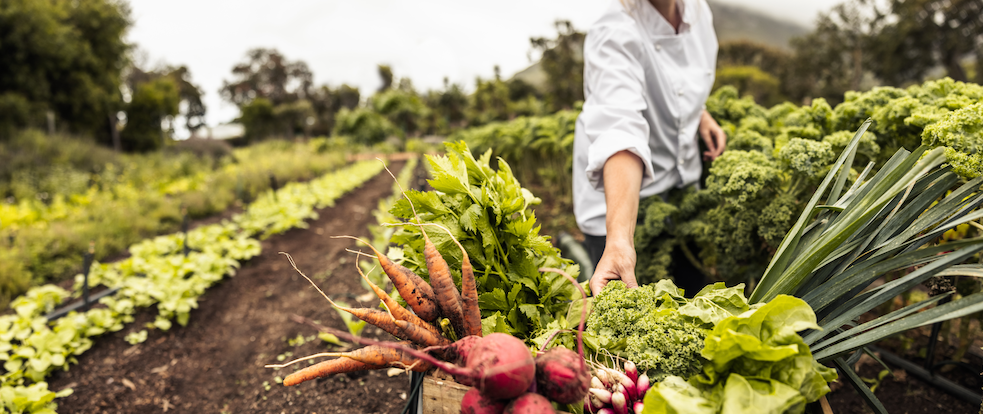Transforming Food Production Challenge sparks innovation for net zero food production
The Transforming Food Production (TFP) Challenge has supported impactful businesses to produce sustainable food which is showcased in these case study videos.

The UKRI Transforming Food Production (TFP) Challenge, delivered by Innovate UK and the Biotechnology and Biological Sciences Research Council (BBSRC), ends in March 2024 having supported new ways to produce food that reduce emissions, pollution and contributes to feeding a growing world population. The TFP Challenge has been highly impactful, supporting business-led innovation to develop and test new ways of producing food that enhances the efficiency, productivity and sustainability of the agricultural sector, to help realise net zero emissions by 2040 with:
- 92 projects funded
- £68.3 million in grant funding committed
- £394 million in private co-investment raised
Series overview
In this case study video series innovation companies share how they have been supported by the TFP Challenge and the impact this support has had on their business in accelerating their journey towards achieving net zero.
This series is divided into six case studies:
- Evaluating the efficacy of novel green fertilisers using carbon capture technology – Pawel Kisielewski, CEO of CCm Technologies. Pawel shares how the TFP funding provided an opportunity to significantly improve knowledge of product benefits, potential emissions reduction impact on farms, and greater farmer engagement.
- Dairyvision – towards net zero dairy farming through AI and machine vision – Robert Boyce, Sustainability Director at Peacock Technology. Using robotic automation and vision-based livestock monitoring in real-world trials for customers was one of the outcomes of Peacocks TFP Challenge support. Robert shares with us how the TFP funding enabled them to get their development project off the ground.
- Advancing bioprocess sustainability for poultry feed from algal biotechnology – Eva Lewis, Head of Food Innovation at Devenish & Roberto Armenta, Chief Scientific Officer at Mara Renewables. In this video Eva and Robert discuss their international partnership which came about from TFP Challenge’s UK-Canada bilateral competition.
- Fruit harvesting robots – Dr Duncan Robertson, Founder & CEO of Dogtooth Technologies. Duncan talks through Dogtooth’s journey to combat the challenge of labour availability in the horticultural sector through the use of robotic automation and the other benefits this has brought to farmers and growers.
- Artificial Intelligence for artificial insemination – Dr Tiffany Wood, Co-Founder & CEO of Dyneval. Tiffany talks through the impact of the grant funding they received from the TFP Challenge along with private investment from Cottagequinn Investments and Kelvin Capital, as well as other syndicates
- Internet of Things monitors for reducing agricultural insect pests – Robert Fryers, CEO & Co-Founder of Spotta. Insect pests are a massive global problem. In this video, Robert talks about how Spotta is working towards solving this problem and the benefits of the TFP Challenge grant funding alongside private equity investment.
Would you like to discover more about the TFP Challenge Fund?
Read more about all 92 projects that were funded by the TFP Challenge by viewing the ‘Catalysing the transition to net zero food production’ brochure. For a deep dive into the long-term influence of the TFP Challenge, make sure to take a look at the TFP Delivering Impact brochure to find out about their cutting-edge technologies – from on-farm robotics and machinery to the use of AI and digital monitoring, through to alternative food production methods.
Related Opportunities
Farming Innovation Programme: Large R&D partnerships Round 3
Opens: 15/01/2024 Closes: 13/03/2024
UK registered businesses can apply for a share of up to £7.8m for large R&D partnership projects from this industry-led fund.
More Information
Environmental Monitoring Innovation
Opens: 22/01/2024 Closes: 06/03/2024
UK registered businesses can apply for a share of up to £5m for collaborative projects to develop innovative solutions in environmental monitoring.


